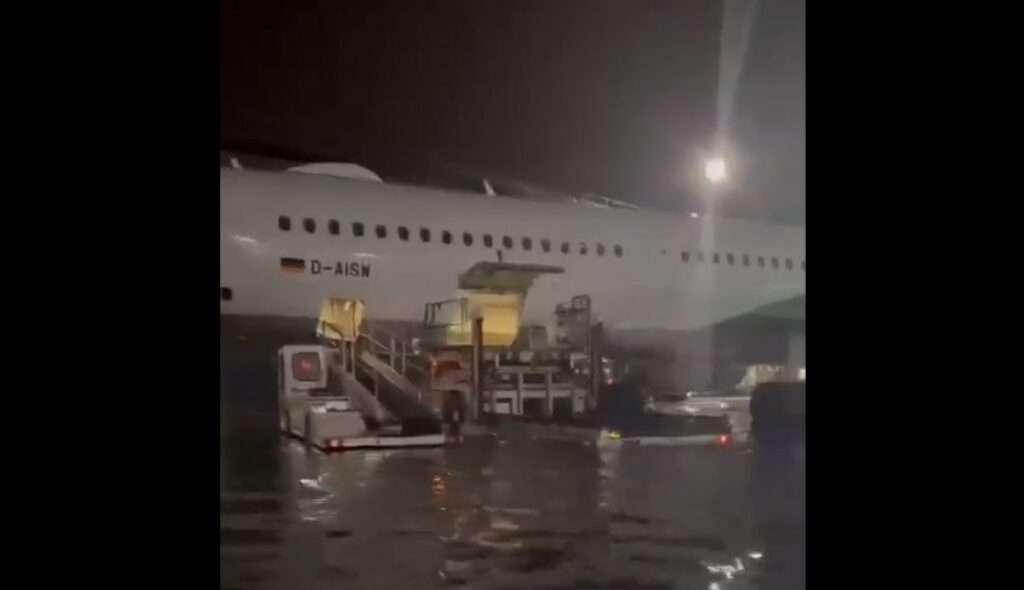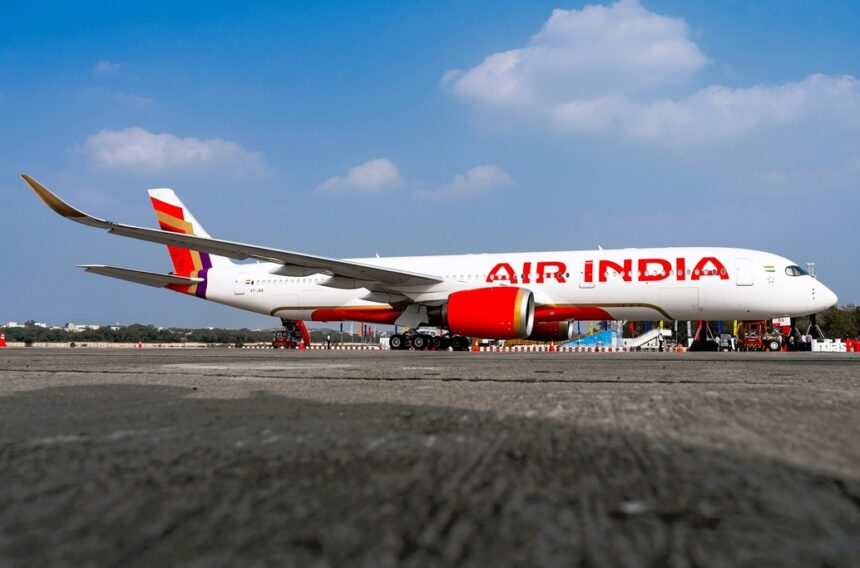Flooding caused by thunderstorms and heavy rains on August 16, 2023, forced the closure of Frankfurt Airport for several hours and led to cancellations and major delays for passengers.
The region experienced heavy rainfall and thunderstorm activity with lightning strikes. As a result the deluge at Frankfurt airport was so bad that some passengers were unable to disembark from arriving flights by late evening.
According to a DW report, the severe weather resulted in the cancellation of some 70 flights, with an airport spokesman confirming that ground handling was brought to a standstill for more than two hours.
The flooding was particularly bad in the area around Terminal 1, where videos circulating on social media showed planes parked at the airport with surrounding areas flooded with water.
[monsterinsights_popular_posts_inline]
Other reported on social media that some passengers had taken to sleeping in the airport terminal complex overnight.
Thansk to #Lufthansa we spent all night on #frankfurtairport floor without any assistance !!!
— Cat BZ (@czopb) August 17, 2023
A shame ! #WhereIsLufthansa pic.twitter.com/Yy5qjTaGkr
The airport said that it was working with airlines to reschedule affected flights. It also advised passengers to check with their airlines for the latest information on their flights.
Initial estimates by Frankfurt Airport have suggested that approximately 1000 people have been affected by the weather-related disturbance.
Airports and extreme weather events
The flooding at Frankfurt Airport is the latest in a series of extreme weather events that have affected airports around the world in recent years.
In 2017, Hurricane Harvey caused widespread flooding at Houston’s George Bush Intercontinental Airport, forcing the closure of the airport for several days. In 2018, Typhoon Mangkhut caused flooding at Hong Kong International Airport, leading to cancellations and delays.
As the climate changes, airports are likely to face more extreme weather events in the future. This will put a strain on airport infrastructure and operations, and could lead to disruptions for passengers.
Airports will need to continue to invest in measures to mitigate the risks posed by extreme weather events, and to develop contingency plans to ensure that they can continue to operate in the event of a disruption.

Click the banner to subscribe to our weekly Emergencies and Incidents newsletter.









